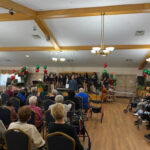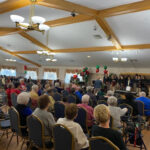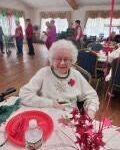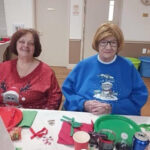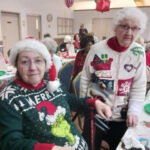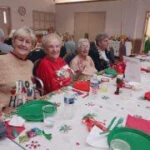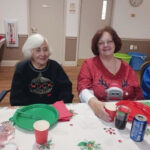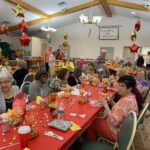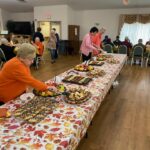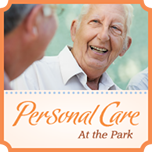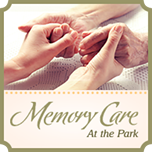Getting a quality night of sleep is just as important for your overall well-being as physical activity and healthy eating. Sleep is a necessity. It helps us unwind, reduce stress and anxiety, lower blood pressure, and improve focus and memory skills – all things that may go through complications as our years progress. It’s also how our body repairs itself, allowing our immune systems to refresh and reset to prevent diseases.
Do you feel like aging has turned you into a lighter sleeper than you used to be? That’s because your body is starting to pump the breaks on its melatonin, which is responsible for helping you fall into a deep slumber. Without a steady sleep pattern, it can lead to a handful of issues that interrupt our daily lives.
Sleep changes with age are a normal experience and don’t always indicate a major problem. But by understanding what might be keeping you up at night, you can create positive habits that ensure you’re getting the 7-8 hours of sleep you need.
Common Causes of Sleep Interruptions
Sleep-related challenges can arise from underlying yet highly treatable causes. By pinpointing all the potential causes, you can make lifestyle adjustments beneficial for your sleep. Ask yourself the following questions:
- Do you regularly experience feelings of stress and anxiety?
- Are you currently using medications that have sleep-related side effects?
- Do you have any pre-existing health issues?
- Are you getting enough exercise?
- What does your nighttime routine look like now?
Stress and anxiety arise from major life shifts, retirement being one of them. Trying to fall asleep when your mind is in a million different places is challenging and uncomfortable and can get in the way of peaceful rest.
Medications and their side effects can sometimes cause drowsiness or insomnia. If you find yourself wide awake at night or needing to nap more than usual, your medication might be a factor in disrupting your sleep.
Pre-existing health conditions, such as Restless Legs Syndrome (RLS) or sleep apnea, are contributing factors that can keep you up. RLS typically occurs in the evenings, giving a consistent urge to move your legs about. Sleep apnea is a more serious condition that causes breathing to repeatedly stop and start throughout the night.
Exercise is very much connected to our sleep. It helps to calm overwhelming emotions and embrace feelings of relaxation after physical activity. If you feel like you’re not as active as you should be, it can make it hard to fall asleep, or you may feel sleepy at irregular times.
Nighttime routine habits directly impact how well you sleep. Things like having an inconsistent bedtime and wake-up time, drinking, or eating before bed, dozing off with the TV or lights on, and late afternoon naps may be potential culprits. Try to head to bed at the same time each night and create a cozy and quiet space to help you drift off.
Here’s How to Sleep Better with Age:
Engage in calm activities before bed and avoid ones that may be over-stimulating. Rather than gluing yourself to the TV, read a chapter of a book or journal about your day. If you find yourself still lying awake after trying this out, leave your sleeping space and try again. Keep the lights low and skip out on screen time.
Stick to a routine by keeping a consistent bedtime and following through the same motions every night. If your body is telling you, it needs more sleep, set an earlier bedtime. Find out what’s working for you vs what’s not and adjust as needed.
Physical activity releases chemicals in our bodies that help us sleep better. To put it simply, a good workout tires us out. Even if you have health or mobility-related issues, there are plenty of activities to try that will meet your needs. Make sure you give yourself at least an hour between the end of your workout and bedtime. Exercising later in the day sometimes makes it harder to fall asleep.
Reducing stress is much easier said than done. Alleviate the pent-up strain it puts on your body by finding ways to take your mind off things. As mentioned, exercising can be especially helpful, as it releases endorphins that contribute to your happiness. Try listening to calming music, explore meditation, or reach out to a friend or family member when you need someone to talk to.
Reach out to a healthcare provider if your efforts to resolve your sleep issues on your own aren’t as effective as you hoped. Your doctor can recommend additional tips, such as tracking medications or keeping a sleep journal to track your patterns. They can also refer you to a sleep specialist if need be.
Being a caregiver is a selfless responsibility encompassing compassion, empathy, and responsibility. Especially when caring for a loved one, it holds great importance to take care of someone close to your heart. However, tending to the personal needs of a loved one can be physically and emotionally challenging for both you and the individual being cared for.
As conditions change or new diagnoses arise, you might reach a point where considering additional care options is what’s best. Grappling with decisions of when it’s time to make this significant transition can be overwhelming. Ultimately, it’s about what benefits your loved one and contributes to both of your overall well-being.
Let’s review the signs and considerations that may indicate it’s time to take a step back as a caregiver.
1. How are you handling changes in your loved one’s condition?
As the person you’re caring for goes through different phases, their health and overall condition may shift, bringing new challenges and complexities. If needs become more demanding, requiring specialized care or resources beyond what you can access or manage, it’s crucial to evaluate if you can continue providing the level of support they need.
Regularly review your loved one’s situation with a healthcare provider. It helps make informed decisions as needed. Having a professional to explore different options eases the burden of this process. Doctors and healthcare staff already familiar with your loved one’s situation will guide you in the right direction.
2. Do you feel like your relationships are being strained?
Balancing caregiving responsibilities with your personal life can strain connections with family, friends, and the individual you’re looking after. The last thing you want is to end up feeling resentful. Many caregivers experience feelings of isolation and a decline in their social life. If you notice that your caregiving duties are affecting your relationships or a social withdrawal, it can take away from how you provide for your loved one and the quality of care they receive.
Nurturing a strong support system should always be a priority. If caregiving has started to strain your relationships, it might be time to focus on rebuilding and strengthening these connections. Seeking help from professional counseling or support groups offers emotional guidance as you navigate this change.
3. Are you noticing a decline in your health?
Caregivers put their loved one’s health first, often at the expense of their own. Taking care of yourself is equally important, especially when protecting your health and preventing burnout. Recognizing the signs of burnout, such as increased stress, fatigue, or frequent illness, can significantly impact your ability to provide care and support.
Acknowledging your own needs and investing more time in self-care is a proactive first step toward enhancing the quality of life for you and your loved one.
4. How much time are you dedicating to your personal goals and ambitions?
Putting your dreams and goals on hold is also common when you’re a caregiver. Taking care of others is a selfless gesture that takes a lot of dedication. With that said, it shouldn’t completely take away from your life aspirations.
Retiring from caregiving is a chance to dive into things you’ve put off, reinvest in hobbies and goals, or learn something new. It’s never too late to rediscover what makes you happy and spend time on your personal growth.
5. Are you worried about your financial situation?
Caring for someone can bring unexpected costs, from paying for medical supplies to making career sacrifices. Sometimes, financial pressures can feel overwhelming and take away from your care delivery.
Consider looking into programs that offer financial help, checking out government support, or talking to a financial advisor for guidance. Ensuring your finances are stable will better your caregiving role and make it more manageable if you’re not ready for retirement just yet.
Taking a step back from caregiving doesn’t mean abandoning your loved one; it means recognizing your limits and finding alternative solutions. Bringing in professional help or exploring assisted living options may be the right move, allowing you to focus on your health while ensuring your loved one’s needs are met, and their health is always a top priority.
At Gloria Dei’s Personal Care and Memory Care at the Park communities, we’re here to support you and your loved ones in decision-making, no matter what path you decide to take. If you’re ready to transition into a new community, visit our website to request more information or schedule a tour. We always have you in good hands.
Our residents and staff had a great time at our holiday party sponsored by our special event committee! We enjoyed Christmas music and spreading cheer with our friends and neighbors. We even had a special visit from The Grinch!
The New Year is an exciting opportunity to turn over a new leaf, and setting resolutions is a fun way to welcome what’s to come! Whether you’re looking to make positive habits, try something that’s been sitting on your bucket list, or focus on things that improve your well-being, it’s the perfect time to explore a new endeavor.
Though there are always opportunities to rediscover yourself and your life’s purpose, as the seasons change and the start of a new calendar year is upon us, why not use this renewal as the motivation you’ve been looking for?
For retirees, setting New Year’s resolutions can be especially helpful. Though retirement is a chapter of life that is eagerly anticipated, it can throw a curveball or two at times. After spending years working or following a familiar routine, transitioning to retirement may be a bit tough. It’s normal for some people to feel uncertain about their life’s purpose as they rediscover new meaning in their lives.
The great part about creating New Year’s resolutions is that you can make them as unique and personalized as you wish. If you’re unsure where to begin, here are a few ideas to spark your creativity:
Try something new.
One perk of retirement is being able to explore new things with more time and independence on your hands. The 55+ Active Living Communities provide residents with plenty of opportunities to pick up a new hobby and meet the goals they set for themselves. Whether it be finding ways to socialize or dedicate more time to working out, the amenities here are endless.
Trying something new can be done independently or with friends. There are group activities such as yoga, building community vegetable gardens, indulging in arts and crafts, or enjoying a movie in our state-of-the-art theater. These are simple yet enjoyable ways to spend time with friends, achieve your New Year’s goals, and feel a sense of accomplishment.
Broaden your social horizons.
New friendships can blossom at any age. As mentioned, engaging in community activities is a great way to meet new people and build meaningful relationships. You never know; you may just find things in common with your next-door neighbor! Meeting new people is also an opportunity to learn something new.
Connecting with new friends takes patience and it’s okay to feel nervous when introducing yourself. It can be as simple as asking others to participate in an activity listed in the community calendar, sharing a meal, or making conversation over a cup of coffee. Gloria Dei’s community bus trips are also a great way to meet others while having a memorable experience.
Stay on the move.
It’s no secret that aging can present risks to our mental and physical health. If you’re feeling worried about your well-being, exercising is a great way to prevent issues from arising and help you stay in shape. Since navigating retirement can be a bit overwhelming at times, being active is known to lift your spirits, release positive emotions, and promote a healthier perspective.
At Gloria Dei’s 55+ Active Living Communities, we understand how important it is to promote the well-being of all our residents. Whether it be indulging in the community fitness centers, participating in an outdoor game, or taking a walk around our landscaped courtyards, there is something for everyone.
Embrace relaxation.
Though being active is key to keeping you in good health, it’s just as important to relax and give ourselves some downtime. Doing so can keep your heart in good health, reduce muscle tension, and improve memory and brain function. Remember, as you test the waters with different resolutions, you don’t always have to push your limits. Be cautious of your abilities and dedicate time to rest as you try new things.
Our communities have cozy seating areas and community rooms for lounging. Residents can access movie rooms, indoor heated pools, and beauty and barber shops, depending on the location. Each of these ways to relax eases the mind and alleviates potential stress. The communities also provide a maintenance-free living style—no need to worry about pesky, time-consuming housework or tasks.
Review and update documents
New Years is the perfect time to revisit any essential documents, such as your written will, or healthcare and financial papers. Reviewing these essentials ensures that the documents are accurate and up to date. Make sure your phone number and address are correct.
It’s always important to have your important documents updated and readily available. As you begin scheduling annual healthcare appointments, having missing information or not knowing where something is the last thing you want to worry about. This is especially important in case an unexpected situation arises.
Focus on your health.
In addition to getting your exercise in, take the initiative to schedule your annual appointments and doctor visits in advance. Making it a point to do this at the start of the New Year avoids procrastination and prioritizes physical and mental health. Staying on top of appointments can reduce any complications from arising.
An additional resolution is setting good eating habits. Consuming fruits and vegetables and staying hydrated improves brain function and energy levels. Don’t forget to get the proper amount of sleep each night. All these healthy habits can prevent common colds that tend to arrive as the temperature drops and lower overall health risks.
For retirees, the transition into retirement is a fresh start. Though goals can be set at any time of the year, the spirit of the New Year brings a greater sense of encouragement. There are many opportunities to step out of your comfort zone to explore new things, try different activities, practice healthy habits, and spend more time doing the things you love.
To learn more about what each of our 55+Active Living Communities has to offer, visit our Active Living page to see the features and amenities of each location and how they serve to encourage New Year’s resolutions for all!
As we go through life, maintaining our mobility becomes important for staying independent and healthy. Mobility is more than just being able to move from one place to another; it includes things like keeping your balance, being flexible, and having strength. As we get older, these abilities can see a natural decline, making us more vulnerable to falls.
Understanding why it’s important for older adults to stay mobile and what typically leads to falls and accidents can help to discover simple ways to stay safe. Follow these steps to help you or a loved one feel empowered and more comfortable in promoting a healthy and happy lifestyle:
Muscle Weakness and Loss of Bone Density.
It’s expected for our bodies to go through changes as we age. Many people often experience a natural decline in both muscle mass and bone density, which leads to weaker muscles and bones. This can make it harder to keep your balance, increasing the chance of taking an unwanted tumble.
Step 1
Taking care of your muscles and bones doesn’t have to be complicated. Doing regular exercises, such as lifting weights and activities that put weight on your bones, can help keep you strong. Remember, take it slow, and don’t push yourself too hard to avoid an injury or strain. You can also eat foods rich in calcium and vitamin D to support bone health. Fruit, eggs, almonds, and leafy greens are easy to incorporate into your diet.
Medication Side Effects.
At times, the medications you’re prescribed can have differing side effects. Dizziness or drowsiness tends to be the most common. While each medication is there to help you, when or if they are taken together, they may create a sense of imbalance.
Step 2
There’s no need to worry – if you find yourself feeling out of sorts, chat with your healthcare provider. They may adjust your doses or suggest a different plan to keep you healthy and steady. Think of it as conquering the right dance moves for your body, so you can keep grooving through without any tumbles in the routine.
Cognitive Decline.
Sometimes your brain can forget its way around, making moving around a bit more confusing and riskier. For loved ones with dementia or Alzheimer’s, these cognitive changes can affect balancing abilities and increase the chances of falling.
Step 3
Creating a tidy, clutter-free environment with clear paths can help. Have regular chats with your doctors to make sure you are taking the right steps to stay on top of your diagnosis and its effects. Consider looking into simple steps and brain exercises that can keep you safe and sound as you go about your daily adventures. If you’re looking for somewhere to start, check out these helpful Creative Activities to Keep a Healthy.
Impaired Vision.
Our eyesight is one of the most common things affected by age. Vision often becomes more blurred and judging distance can become tricky. Imagine you’re wearing glasses that keep fogging up. Your surroundings may not look as clear as they used to.
Step 4
The good news is that running into challenges with your eyesight is an easy fix. Regular eye exams to give your vision a little tune-up will ensure your eyes are always in good shape. Staying on top of your sight will help you safely navigate your surroundings.
Lack of Physical Activity
When we’re not active, it’s as if our muscles are taking a nap. Our bodies have more difficulty moving around as they tend to be stiffer. If you find yourself or a loved one spending a lot of time sitting around, be wary of it making the muscles weaker and less flexible.
Step 5
Doing simple exercises like walking or stretching can wake up those muscles, improve flexibility, and help with your balance. It doesn’t have to be anything complex – go at your own pace! Exercising is also a great way to boost your mood. Adding a bit of movement into your daily routine will give your body the extra love and care it needs.
The holiday season is traditionally a time for families to come together. Being a long-distance grandparent during this time of year can bring a mix of feelings, combining happiness and excitement while wishing for togetherness. Though there may be distance, there are plenty of meaningful ways to stay connected to your grandchildren through the holidays.
Bonding with your grandchildren, even when separated by miles, are cherished moments that will last a lifetime. Here are some tips on how to be a long-distance grandparent and still enjoy this time of year with your loved ones:
Send love from miles away.
The holidays are notorious for being a time of gift-giving. Sending thoughtful presents or writing a handwritten card can be a wonderful way to show your love and appreciation. While you may not physically be there to celebrate, with the right words or a unique gift, you can make them feel special.
Anything personalized holds meaning, so considering the unique aspects of your grandchildren can make for something special. Remember that there is no need to overexert your budget. Handmade gifts are often the sincerest. Put your crafting skills to use to add a personal touch that will always be valuable. Knitting a cozy scarf or hat, writing and decorating a personalized card, or making a scrapbook are festive mementos. Handmade gifts show love and compassion with the time and effort you’ve put into creating something just for them.
Virtual togetherness
With the help of technology, cell phones, and video chats pave the way for connecting with your grandchildren near and far. They make it easy to bridge the gap and bring you closer to your loved ones during this time of year.
Video calls are a fantastic way to have face-to-face interactions with your grandchildren. Schedule regular video calls on Skype, FaceTime, or Zoom to enjoy the season together. Try different virtual activities, such as a game, or go around and share some of your favorite memories from holidays past. Be creative! You never know when you’ll come across the start of a new tradition.
The great thing about video chats and phone calls is that multiple people can join simultaneously, allowing you to spend time with everyone, no matter the distance. When it comes time for a gathering or sharing a holiday meal, virtually invite your grandchildren to join. Hearing each other’s voices and sharing a smile can make the distance feel smaller.
Share moments of lasting memories
Reminiscing is one of the best ways to spread holiday cheer. Create a digital photo album of some of your favorite snippets. Along with the photos, include captions or short descriptions to make the photos more meaningful. Not only will this give your grandchildren a glimpse into the past, but it also helps them understand your family history and the stories behind each photo.
You can make digital photo sharing a collaborative activity too. Rather than doing individual projects, why not work on one together? You and your family can go in individually and add whatever content you wish. Going about digital photo sharing this way can be fun to be surprised when something new is added to your shared album.
Swap recipes
Food has a way of bringing people closer, and by exchanging tasty holiday recipes, you can pass on family traditions and feel connected even from afar. Just as you would a gift or a card, holiday treats can be shipped too! Whether it’s your secret cookie recipe or a cherished family dish, sharing a culinary treasure allows your grandchildren to experience a taste of your love and the joy of cooking.
Sharing recipes with your grandchildren is also an opportunity to start a new tradition or reignite an existing one. You can schedule a virtual cooking session to guide them through the steps like you are with them. From measuring ingredients to stirring the batter, cooking is a great way to have fun and feel festive.
Reunite beyond the holidays.
Traveling can be challenging during the holiday season, especially if your loved ones are far away. The combination of high prices and heavy traffic can make for a stressful trip during what’s supposed to be the most wonderful time of the year. Instead, it’s always exciting when you have something to look forward to! Make up for the missed time by planning a trip to see your grandchildren and loved ones after the holiday rush subsides.
In the meantime, Gloria Dei’s 55+ Active Living Communities are full of holiday cheer. Whether you’re a party of one or accompanied by local friends and family, come enjoy the holiday festivities.
The holidays are one of the most joyful times of the year. As loved ones gather with each other and the festive spirit fills the air, it creates a sense of happiness. For those in personal care or memory care, being a part of the wonder of the season is truly something special.
With age or after a diagnosis, health can prevent us from doing certain things. The activities we once enjoyed during this time of year may feel overwhelming or not as manageable due to the season’s busy nature. Though there may be a bit of change needed, there are plenty of ways to include loved ones in the holiday fun!
Adjust Your Traditions
The holidays are notorious for tradition-making. Whether you are keeping decade-long traditions alive or discovering new ones, it can be a meaningful way to spend time with those we hold close to us. As our loved one’s experience changes, traditions may need to be simplified so they remain enjoyable and meet the needs of all.
Memories and photographs last a lifetime. Using them to reminisce on holidays past is a simple tradition that isn’t overexerting. Consider bringing out the photo albums or starting one this year. For those in memory care, this activity can be especially helpful to exercise the brain. If you’re looking for something more interactive, try taking your own holiday-themed pictures. Dress up in festive outfits or take candid pictures that can be added to the collection of memories.
A favorable part of the season is all the delicious treats that come with it. Between classic cookie baking and traditional meals, it is a quite tasteful tradition to carry. Baking is another tradition that is either passed on or an exciting new endeavor. Whether you invite your loved one to share this experience with you or give them the delicious creations you whipped up yourself, everyone enjoys these festive favorites.
Movies centered around the holidays are another favorite tradition. Not only is it a way to bond, but it can be a nice way to relax. This traditional activity is especially beneficial for those who may not be as physically active. Many of these films are lighthearted and bring out a laugh or two that can create a sense of happiness during the stress of such a busy time.
Decorate A Loved One’s Space
Decorations make the holiday spirit come to life, and taking the time to deck out your loved ones’ space goes a long way. Looking at the winter décor, such as vibrant lights, colorful ornaments, and fresh garland, ignites a peaceful feeling. Decorating can embrace your inner child, restoring the magic of the season you’ve always known.
Making your own decorations is also a unique, do-it-yourself way to get crafty. From the classic paper or felt snowflakes to a personalized winter watercolor painting, there are options for all different abilities. Crafting can have a soothing effect. Art releases serotonin, which betters overall well-being.
If you decide to craft with your loved one, practice patience. The most important thing to remember is that decorating is an opportunity for togetherness. Dedicating this time to spend together is another holiday memory to be made.
Community Festivities
For those who can’t venture much outside of their community, visitation, especially during the holidays, is always encouraged. At our Personal Care and Memory Care Communities, we offer an abundance of opportunities for you and your loved ones to have fun and enjoy each other’s company. Friends and family are always welcome to share a cup of hot chocolate or partake in one of the many activities on the monthly activity calendar.
For older adults who enjoy being active, consider bundling up for a short walk to get some fresh air and take in the outdoor decorations. Our community grounds are well-kept and clear, no matter the inclement weather. Be wary of the cold temperatures. When the temperature starts to drop, it can pose a threat to the health of our loved ones. Always dress appropriately and limit your time outside.
Look Out for Your Loved One
As the seasons change, so can the well-being of your loved one. Seasonal Affective Disorder (SAD) typically affects older adults during the fall and winter when there is less daylight. Natural light can have a direct impact on our psychological well-being, and when there’s not enough of it, it can bring on feelings of stress and sadness.
Engaging your loved one in various activities can help them cope with the challenges of the changing season. Keeping them occupied lets them enjoy the moments of togetherness. Remind them that this time of the year is only temporary, and there’s still happiness to be found within it.
No matter what your loved one may be experiencing, there are always ways to make the holidays enjoyable for them, despite any changes. Our Personal Care and Memory Care Communities strive to make the most of the holiday season for our residents and their families. To discover more about how you can celebrate this time of year with those closest to you, visit the Personal Care and Memory Care website to check out our activity calendar full of festivities for everyone!
